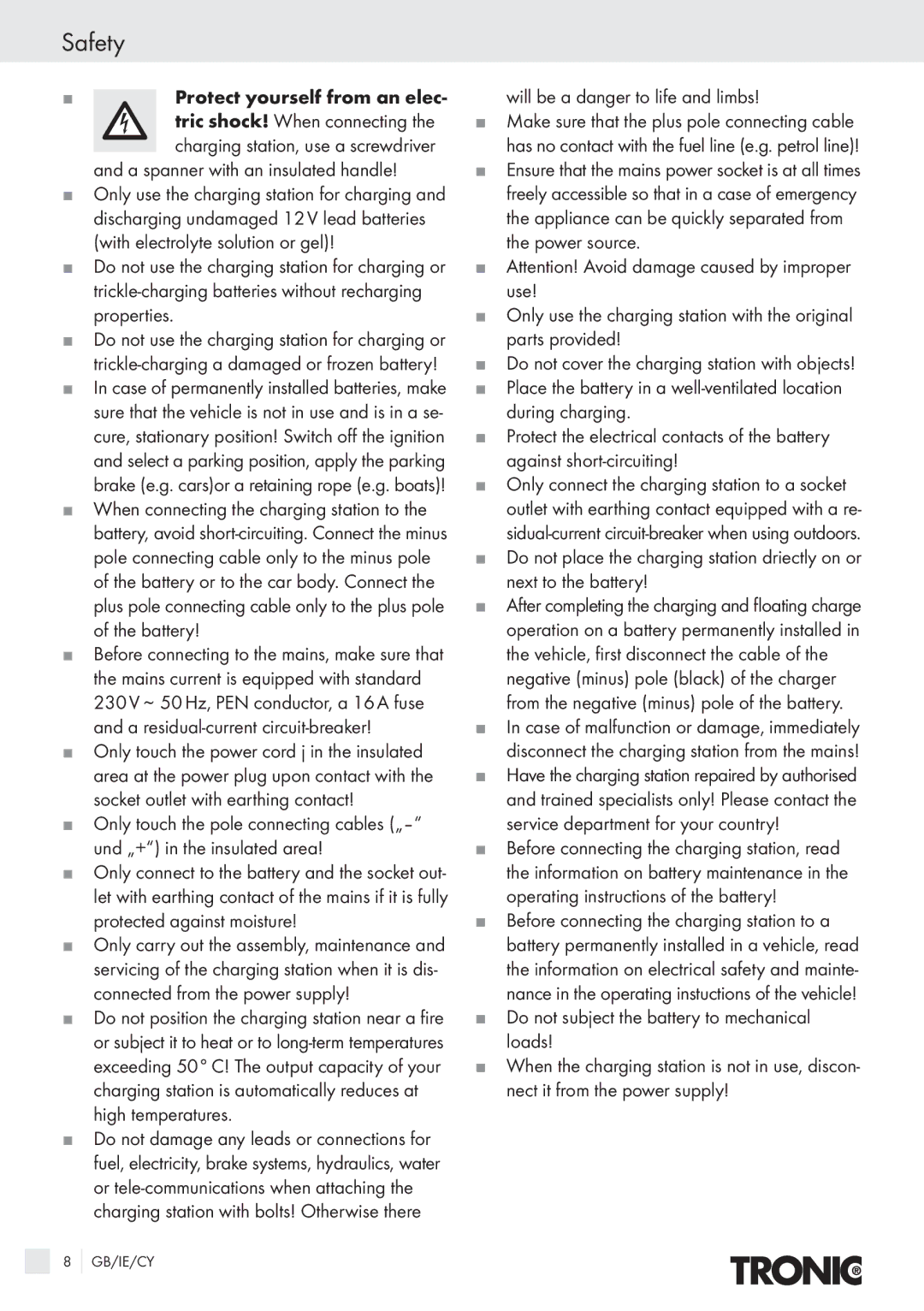
Safety
JProtect yourself from an elec- tric shock! When connecting the
charging station, use a screwdriver and a spanner with an insulated handle!
JOnly use the charging station for charging and discharging undamaged 12 V lead batteries (with electrolyte solution or gel)!
JDo not use the charging station for charging or
JDo not use the charging station for charging or
JIn case of permanently installed batteries, make sure that the vehicle is not in use and is in a se- cure, stationary position! Switch off the ignition and select a parking position, apply the parking brake (e.g. cars)or a retaining rope (e.g. boats)!
JWhen connecting the charging station to the battery, avoid
JBefore connecting to the mains, make sure that the mains current is equipped with standard
230 V ~ 50 Hz, PEN conductor, a 16 A fuse and a
JOnly touch the power cord j in the insulated area at the power plug upon contact with the socket outlet with earthing contact!
JOnly touch the pole connecting cables
JOnly connect to the battery and the socket out- let with earthing contact of the mains if it is fully protected against moisture!
JOnly carry out the assembly, maintenance and servicing of the charging station when it is dis- connected from the power supply!
JDo not position the charging station near a fire or subject it to heat or to
JDo not damage any leads or connections for fuel, electricity, brake systems, hydraulics, water or
8 GB/IE/CY
will be a danger to life and limbs!
JMake sure that the plus pole connecting cable has no contact with the fuel line (e.g. petrol line)!
JEnsure that the mains power socket is at all times freely accessible so that in a case of emergency the appliance can be quickly separated from the power source.
JAttention! Avoid damage caused by improper use!
JOnly use the charging station with the original parts provided!
JDo not cover the charging station with objects!
JPlace the battery in a
JProtect the electrical contacts of the battery against
JOnly connect the charging station to a socket outlet with earthing contact equipped with a re-
JDo not place the charging station driectly on or next to the battery!
JAfter completing the charging and floating charge operation on a battery permanently installed in the vehicle, first disconnect the cable of the negative (minus) pole (black) of the charger from the negative (minus) pole of the battery.
JIn case of malfunction or damage, immediately disconnect the charging station from the mains!
JHave the charging station repaired by authorised and trained specialists only! Please contact the service department for your country!
JBefore connecting the charging station, read the information on battery maintenance in the operating instructions of the battery!
JBefore connecting the charging station to a battery permanently installed in a vehicle, read the information on electrical safety and mainte- nance in the operating instuctions of the vehicle!
JDo not subject the battery to mechanical loads!
JWhen the charging station is not in use, discon- nect it from the power supply!
